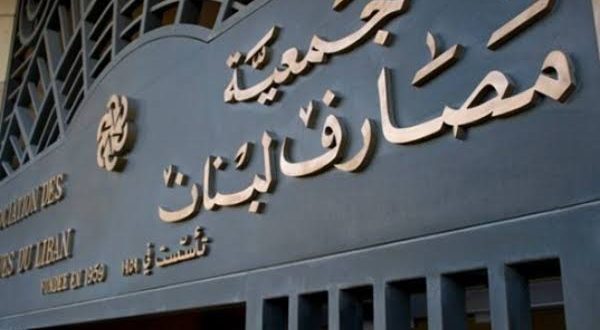Lebanon’s finance minister urged prosecutors to take action against the country’s banks after they defied a government order to maintain “necessary functions” by announcing that they would close until March 29, citing coronavirus.
Finance Minister Ghazi Wazni called on prosecutors to “act quickly in light of the Association of Banks [in Lebanon’s] hasty decision to close without paying attention to people’s interests, even to a minimum standard.”
Lebanon’s cabinet announced a state of medical emergency on Sunday, closing all non-essential businesses and ordering a “general mobilization,” to support the effort to fight the coronavirus outbreak, which has infected 109 people in Lebanon, killing three.
But banks, along with supermarkets and pharmacies, were ordered to continue providing basic services to the Lebanese people.
A senior banking source told Al Jazeera that the decision to close until March 29 had been based on a request by the local union of bank employees to reduce employee-customer contact as a precautionary measure to manage the risk of coronavirus infection.
Nizar Saghieh, a lawyer and founder of progressive NGO Legal Agenda, described the decision as the latest act of defiance by a banking sector that has acted with impunity as Lebanon battles a deepening economic crisis.
“It’s like they are trying to tell the state that no one can force them to do anything,” Saghieh told Al Jazeera. “They can be asked to do something, and if they don’t want to, they simply don’t.”
Brewing Standoff
Monday’s announced bank closures is the latest salvo in a continuing standoff between Lebanon’s new government and the once-respected pillar of the country’s economy.
The trouble began for banks mid-last year as an acute dollar shortage in Lebanon hammered the value of the Lebanese pound on parallel markets. The local currency has been formally pegged to the US dollar since 1997 and was used interchangeably with dollars.
Confidence in the country’s financial sector sank even further after banks closed their doors for two weeks during an unprecedented anti-establishment uprising in October. When they reopened in November, many institutions embarked on a series of what have been increasingly harsh informal capital controls restricting US dollar withdrawals and transfers abroad.
Informal capital controls, implemented at the discretion of banks without legislation, are legally suspect. But banks argue such restrictions are necessary to prevent a total collapse of the sector as it is left to fend for itself while politicians avoid implementing politically toxic but necessary formal capital controls.
Prime Minister Hassan Diab recently said the government would move to formalise “the relationship between banks and depositors”.
With anger rising over the ever-changing discretionary measures, Financial Prosecutor Ali Ibrahim froze the assets of 20 Lebanese banks and their chairmen and boards of directors in early March as part of an investigation into informal capital controls.
But that decision was quickly overruled by Judge Ghassan Oueidat after banks said the measures would force them to close.
Rather than investigate the banks for their allegedly illegal activities, a number of judges, including Ibrahim and Oueidat met with the Association of Lebanese Banks and agreed to a seven-point memorandum that would ease restrictions on the withdrawal of local currency and transfers abroad. It did nothing, however, to address the main points of contention with depositors – namely, the sharp limits on US dollar withdrawals.
“After all the humiliation people have been subject to, whether by capital controls or waiting in long lines or restricting transfers of money, the judges meet with bankers and issue the minutes of a meeting, rather than the contents of an investigation. Can you imagine this?” Saghieh said.
Trouble in Paradise
Banks and the country’s politicians have long enjoyed a cosy relationship, with more than 40 percent of banks’ assets owned by politicians, their families, and close associates, according to a 2015 study by Jad Chaaban, a professor of economics at the American University of Beirut.
Those same politicians appoint the country’s judiciary, Saghieh said, which he believes explains the reluctance of the judiciary to go after the banks.
However, the deep economic crisis in the country, which led the country’s cabinet to announce Lebanon’s first-ever debt default earlier this month, is opening fault lines in the relationship.
Prime Minister Diab has said the government was looking to restructure the banking sector and has repeatedly promised to protect small deposits, an indication to some that large deposits may be subject to a haircut as a way of dealing with the apparent insolvency of many banks.
“There is a tug-of-war between the government and the banks today,” Saghieh said. “I don’t know how far the government is willing to go with this, nor exactly what its goals are, but it’s clear there is a confrontation.”
Al Jazeera News
 Lebanese Ministry of Information
Lebanese Ministry of Information



